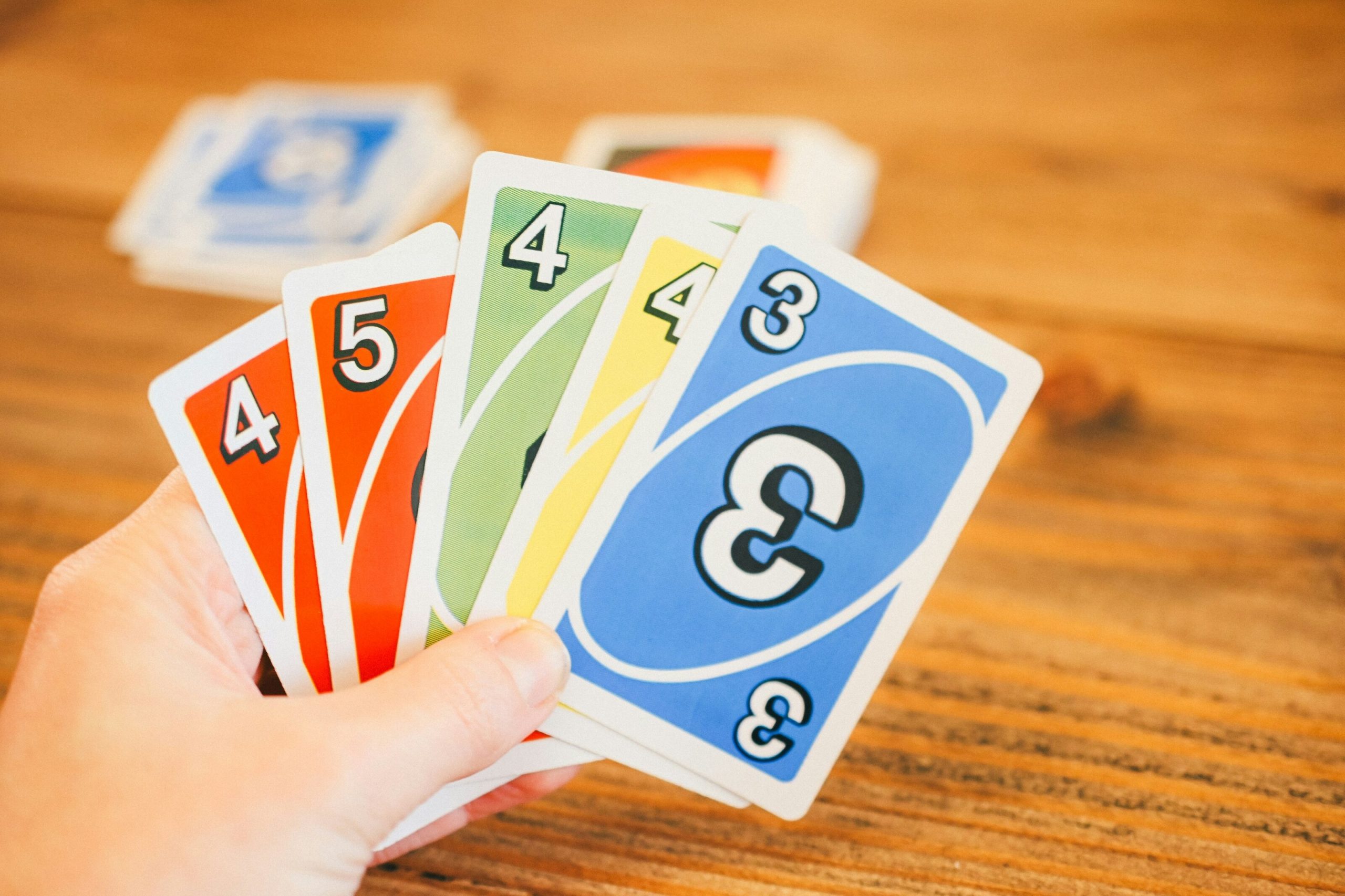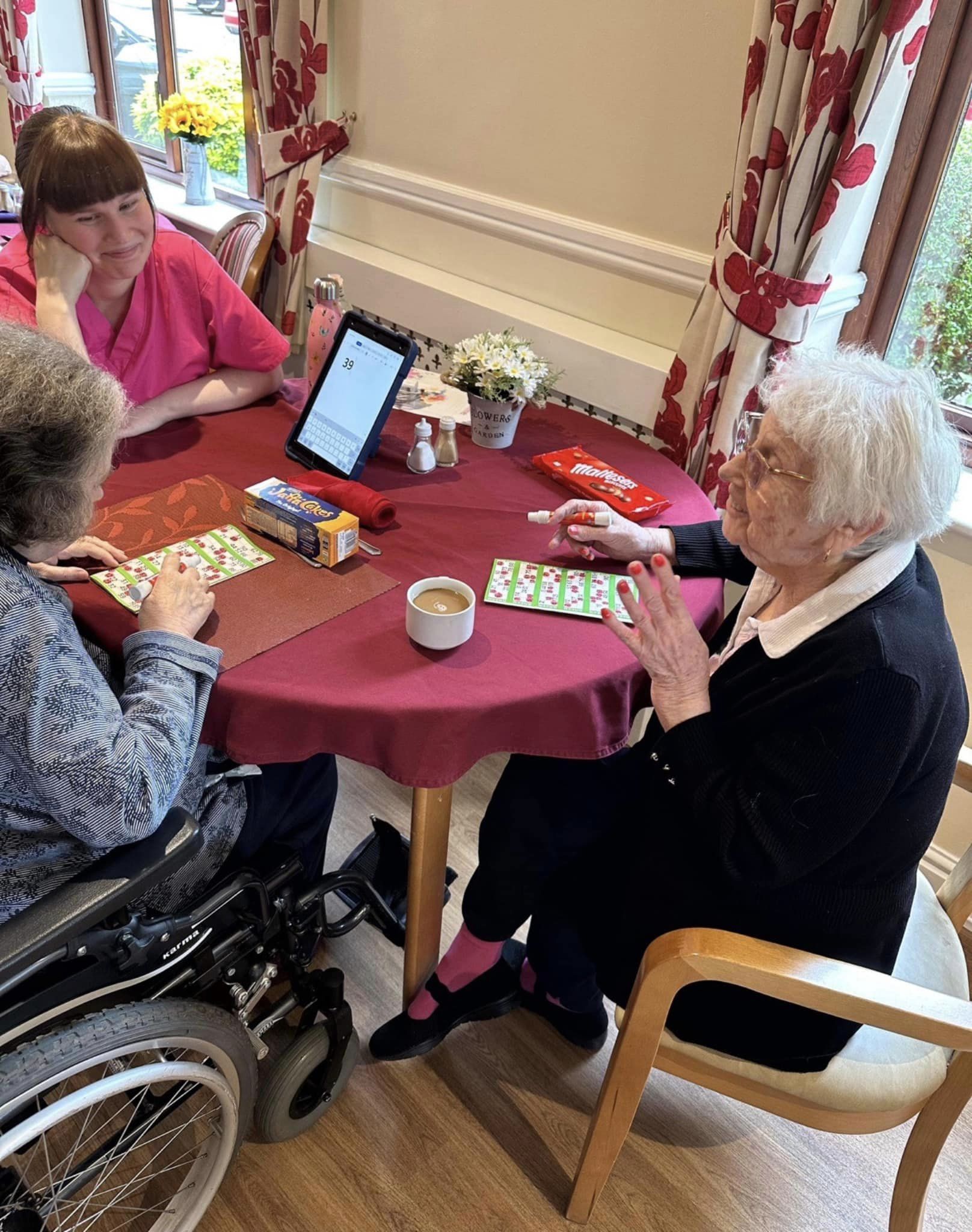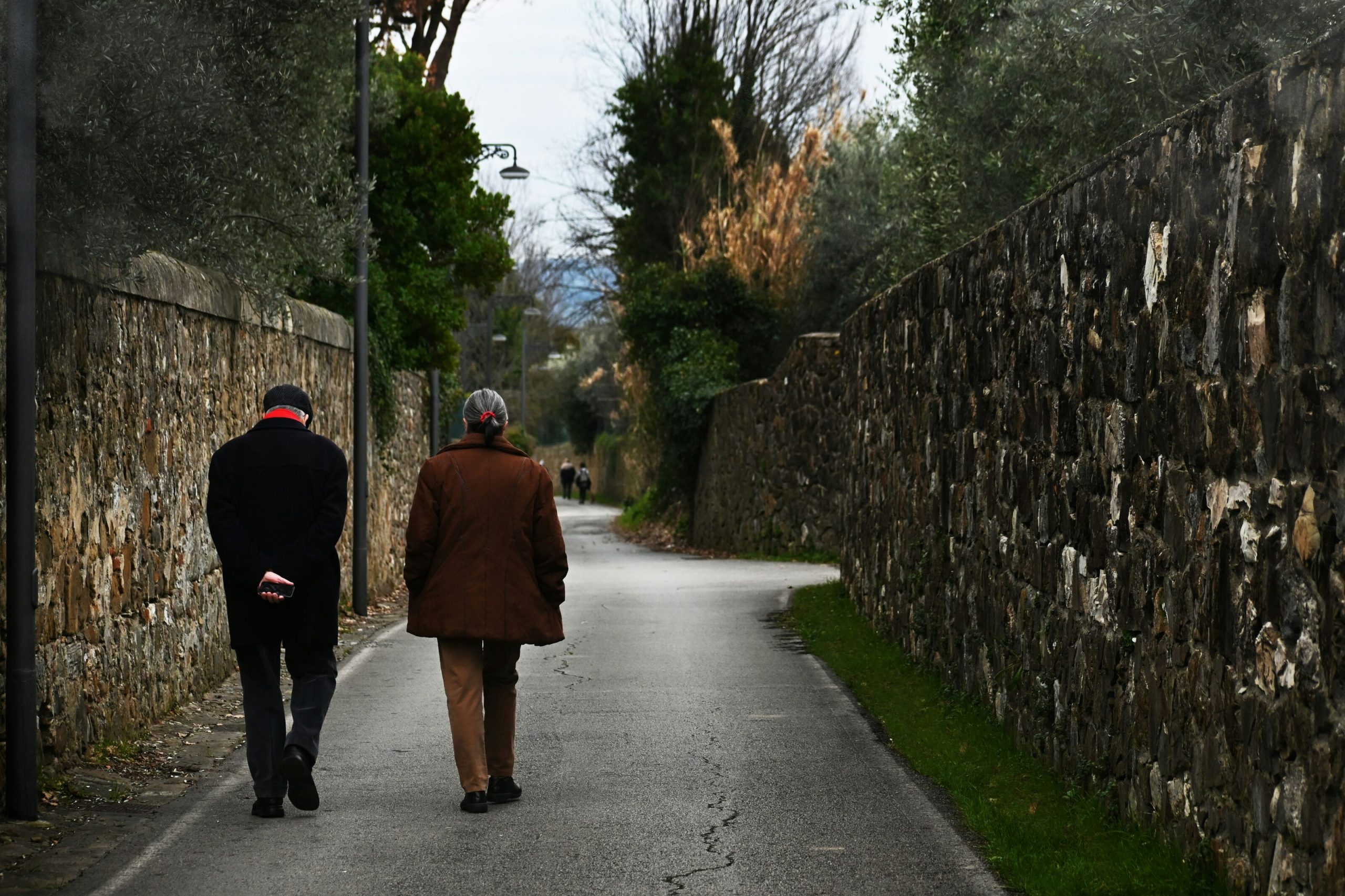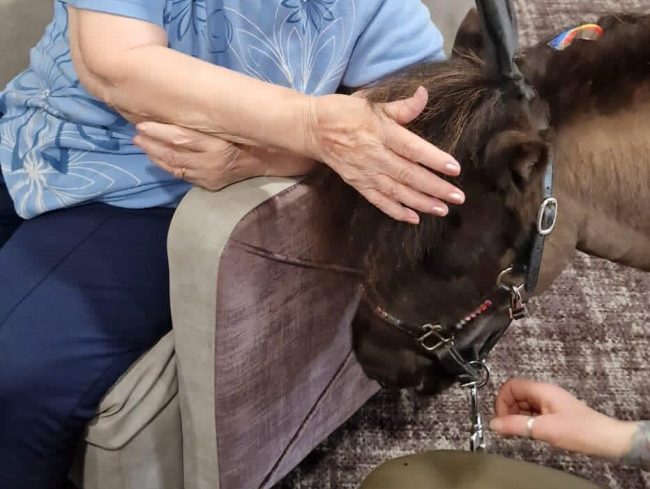Games & Activities for People With Dementia
Dementia affects millions of people worldwide, impacting not only cognitive function but also overall quality of life. Therefore, engaging in meaningful activities is crucial for maintaining cognitive function, social interaction, and emotional well-being in people with dementia. Studies have shown that activities such as cognitive stimulation therapy can improve quality of life by boosting thinking and attention skills. Moreover, factors like depression and functional impairment significantly impact quality of life, highlighting the importance of interventions that address these issues.
At Tanglewood Care Homes, we prioritise personalised care plans that respect individual preferences and empower residents to maintain control over their lives. Our approach is built on the principles of person-centred care, ensuring that residents feel valued, respected, and supported in all aspects of daily life. This article explores a range of games and activities designed to enhance the lives of people with dementia, focusing on cognitive stimulation, social engagement, and emotional well-being.
By understanding the benefits and implementing these activities effectively, we can significantly improve the quality of life for individuals living with dementia, fostering a more fulfilling and engaging experience for them and their families.

Simple Games for Dementia Patients & Residents
Engaging in simple games can be incredibly beneficial for people with dementia, as these activities stimulate cognitive function, encourage social interaction, and provide a sense of enjoyment and accomplishment. Here are some tailored games that are both accessible and engaging for individuals with dementia:
1. Card and Board Games
- UNO: This colourful card game is not only fun but also helps improve attention span and decision-making skills. The simple rules make it accessible, while the need to match colours or numbers encourages visual recognition and logical thinking. It’s also an excellent way to foster social interaction, as it can be played in small groups.
- Bingo: Bingo is a fantastic game for enhancing concentration and short-term memory. The anticipation of hearing the next number keeps players engaged, while marking their cards improves hand-eye coordination. For those with visual impairments, large-print or tactile cards can make the game more inclusive.
- Snakes and Ladders: This classic board game is ideal for promoting turn-taking and patience. Rolling the dice and moving pieces across the board also supports fine motor skills. The simplicity of the game ensures it remains enjoyable without requiring complex thought processes.

2. Puzzles and Brain Teasers
- Word Searches: Word searches are excellent for maintaining language skills and stimulating memory recall. They encourage focus as players search for specific words, which can be themed around familiar topics like animals or seasons to evoke positive memories.
- Crosswords: Simplified crosswords can help improve verbal reasoning and vocabulary while providing a sense of accomplishment when clues are solved. Caregivers can assist by offering hints or working collaboratively, turning it into a bonding activity.
- Jigsaw Puzzles: Completing a jigsaw puzzle helps with spatial awareness, problem-solving, and hand-eye coordination. For dementia patients, puzzles with larger pieces and familiar images (e.g., landscapes or animals) are particularly effective at evoking positive emotions.
3. Video Games
- Memory-Matching Games: Digital memory games designed to match pairs of cards or images are excellent for improving short-term memory and pattern recognition. They are easy to use on tablets or smartphones, making them a modern yet accessible option for cognitive stimulation.
- Interactive Apps: Apps like “Lumosity” or “Peak” offer a variety of brain-training games that enhance attention, problem-solving, and processing speed. These apps allow caregivers to adjust difficulty levels to suit the individual’s abilities.
Whether it’s the joy of calling out “Bingo!” or the quiet satisfaction of completing a puzzle, these games create moments of connection and accomplishment that truly matter. Caregivers should view these activities as opportunities to not only entertain but also support the overall health and happiness of those living with dementia.

Meaningful Dementia-Friendly Activities
1. Arts and Crafts
- Colouring Books: Colouring is a simple yet effective activity that promotes relaxation and reduces anxiety. For individuals with dementia, it can help maintain focus and improve fine motor skills by encouraging the use of hands and fingers. The repetitive motion of colouring is soothing, while familiar themes (e.g., flowers or landscapes) can evoke positive memories and emotions.
- Painting: Painting allows for creative expression and provides an outlet for emotions that may be difficult to verbalise. Using large brushes or finger painting makes it accessible for those with limited dexterity. The act of mixing colours and creating art stimulates the brain and enhances mood by releasing dopamine, which is known to improve feelings of happiness and reduce agitation.
- Collage Making: This activity engages tactile senses by using materials like paper, fabric, or natural objects. It fosters creativity while also improving hand-eye coordination. Collage making can be themed around personal memories (e.g., family photos or favourite places), making it a powerful tool for reminiscence therapy.
Practical Benefits:
- Enhances fine motor skills and hand-eye coordination.
- Provides an alternative form of communication for those who may struggle with verbal expression.
- Stimulates memory recall through familiar themes or sensory triggers.
2. Music and Dance
- Music Therapy: Music has a unique ability to evoke memories and emotions. Listening to familiar songs from an individual’s youth can trigger positive recollections, improve mood, and even encourage verbal communication in those who are otherwise non-verbal. Singing along to lyrics also stimulates language centres in the brain.
- Dance Sessions: Dancing combines physical activity with emotional expression. Gentle movements to music improve coordination, balance, and mobility while reducing anxiety and agitation. For individuals who are less mobile, chair-based dance sessions offer a safe alternative that still allows for rhythmic movement. At Tanglewood, we have collaborated with BeGreatFitness, who offer a variety of activities for our residents, from light exercises and gentle stretching to dance and other creative movement activities
Practical Benefits:
3. Sensory Stimulation
- Nature Walks: Walking in gardens or parks provides sensory stimulation through sights, sounds, and smells of nature. This activity is calming and helps individuals feel more connected to their environment.
- Gardening: Gardening offers tactile engagement through handling soil, planting seeds, or watering plants. It provides a sense of purpose and accomplishment while stimulating memory recall of past gardening experiences.
- Tactile Activities: Activities like rummaging through sensory boxes filled with textured objects (e.g., fabrics or natural materials) can soothe agitation and provide comfort through touch.
Practical Benefits:
- Improves sensory processing by engaging multiple senses simultaneously.
- Reduces feelings of isolation by creating opportunities for shared experiences.
- Promotes relaxation and reduces stress through calming sensory input.
4. Storytelling and Reminiscence
- Photo Albums: Viewing photo albums encourages memory recall and sparks conversations about past experiences. This activity strengthens emotional connections with caregivers or family members.
- Sensory Stories: Sensory storytelling combines words with tactile elements like scents or textures to bring stories to life. These stories are particularly beneficial for individuals in advanced stages of dementia who may struggle with verbal communication. Repeated storytelling sessions can become a soothing ritual that fosters anticipation and comfort.
Practical Benefits:
- Supports memory recall by linking sensory triggers to past experiences.
- Encourages social interaction through shared storytelling sessions.
- Provides emotional comfort by creating a structured, predictable activity.
Dementia-friendly activities are more than just pastimes – they are therapeutic tools that address cognitive, emotional, and social needs. Whether it’s the creativity of painting, the rhythm of music therapy, or the calming effects of nature walks, these activities provide meaningful engagement tailored to individual abilities.

Activities for Dementia Residents in Care Homes
Structured Programs
Group Activities
Group activities are a vital part of our care strategy, designed to encourage social interaction and engagement among residents. These activities help reduce feelings of isolation and loneliness, promoting a sense of community and belonging. For instance, our residents enjoy participating in reminiscence therapy sessions, where they share memories and experiences triggered by familiar objects or music. This activity not only enhances cognitive function but also strengthens emotional bonds among participants.
Themed Events
Themed events add variety and interest to daily routines, providing a change of pace and stimulating curiosity. At Tanglewood, we host regular themed events, including Alice in Wonderland tea parties, VE Day street parties, and celebrations of Elvis Presley, which create a vibrant atmosphere and encourage social interaction. Our Country and Western Day, at Cedar Falls, allowed residents to enjoy lively music, staff dress up in cowboy outfits, and activities like horse racing to be organised. These events are carefully planned to evoke positive memories and emotions, making them particularly enjoyable for residents with dementia.
Personalised Care Plans
Tailored Activities
Our personalised care plans ensure that each resident’s activities are tailored to their individual interests and abilities. This approach is rooted in our commitment to person-centred care, where residents are empowered to make choices about their daily lives. For example, Vilius, a keen gardener and our resident at Hunters Creek, was determined to cut the lawn in the communal gardens. Our dedicated staff quickly collaborated to ensure he could safely take on this responsibility. This not only provides physical exercise but also stimulates memory recall and emotional well-being.
Family Involvement
Family involvement is integral to our care philosophy. We encourage family members to participate in activities with their loved ones, fostering emotional bonds and providing support. This collaborative approach ensures that residents feel connected to their families and communities.
The Tanglewood Approach to Dementia Care
At Tanglewood, we recognise that every individual’s journey with dementia is unique. Our compassionate team is trained to support people living with dementia, ensuring they feel settled and safe. We achieve this through daily interactions, activities, and a deep understanding of each resident’s needs. Our Dementia Cafe, for instance, offers a supportive environment where residents, families, and the community can come together, share experiences, and participate in meaningful activities. This initiative reflects our commitment to creating a welcoming and inclusive space that extends beyond our care homes to the wider community.
With 20 purpose-built care homes across the UK offering industry-leading facilities such as on-site cafés, cinemas, and hair salons, Tanglewood is more than just a care provider—it’s a community where residents can thrive. Take the next step for your loved one’s care by contacting us today or arranging a visit to one of our welcoming homes to see how we can support you and your family.
To learn more about Tanglewood Care Homes or to arrange a visit to one of our care homes, please call us on 01205 358888 or email us at info@twhealthcare.co.uk.




